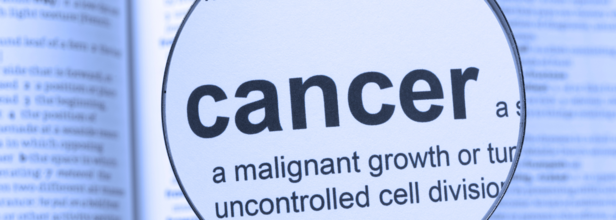
Credit: Canva
What Are The Three Body Types? Which One Can Build Muscle Fastest?
Building muscle mass offers more than just aesthetic benefits—it can help you achieve more balance, improve blood sugar management and boost mental well-being. However, the ease of gaining muscle can vary depending on your body type. If you've struggled to bulk up despite consistent effort, then probably you are mesomorph. On the contrary, if you are an ectomorph and an endomorph, then you'll struggle to gain weight.
What Are Body Types?
Body types, or somatotypes, are generally classified into three categories: mesomorphs, ectomorphs, and endomorphs. Mesomorphs, in particular, are known for their athletic build, with broad shoulders, narrow waists, and a natural propensity for muscle growth. According to personal trainer Phil Catudal, who spoke to a leading fitness publication, mesomorphs are easily identifiable by their proportions—if your waist and hips are about the same width, you might fall into this category.
Beyond physical appearance, mesomorphs have an edge in muscle-building due to their naturally higher muscle mass and lower fat levels. This implies that they can gain significant results from moderate workouts, making them well-suited to activities requiring strength and stamina.
What Is The Mesomorphic Advantage?
The mesomorphic advantage lies in their ability to build muscle quickly and maintain it. This is because they have a balanced composition of muscle and fat, which allows mesomorphs to achieve results with less effort than other body types. Unsurprisingly, many athletes possess mesomorphic traits. However, mesomorphs are not immune to weight gain. While they may gain fat as easily as muscle, they can shed excess weight effectively by combining a healthy diet with exercise.
What About Ectomorphs and Endomorphs?
Ectomorphs are the body types that are characterized by their lean frames and they often struggle to gain weight. Therefore, it is tougher for them to gain muscles, despite accurate exercise and diet.
On the other hand, endomorphs tend to carry more body fat, which can obscure their muscle mass and make workouts more challenging.
However, it is not impossible to gain muscles for these two body types. Tailored workouts and diet is the answer. Ectomorphs benefit from high-calorie, nutrient-dense diets and strength training with heavier weights, as the International Sports Sciences Association (ISSA) advises. Endomorphs, meanwhile, may focus on calorie control, muscle-building exercises, and high-intensity cardio to improve endurance and shed fat.
ALSO READ: 20-Minute Thigh Workout You Can Nail Without Getting Off The Floor
Regardless of the body type, there are a few exercises that help muscle gain. They include squats, deadlifts, bench presses, overhead presses and pull-ups.
1. Squats: A foundational exercise that targets the lower body, improving leg strength and core stability.
2. Deadlifts: A compound movement that strengthens the back, glutes, and hamstrings while enhancing overall power.
3. Bench Presses: A key upper-body exercise that builds chest, shoulder, and tricep muscles.
4. Overhead Presses: A shoulder-focused lift that also engages the core for stability and balance.
5. Pull-ups: A bodyweight exercise that develops upper-back, bicep, and grip strength.

Credits: Canva
Fact Check: Can Ivermectin Really Treat Cancer?
In the recent years there have been questions about the potential of ivermectin which is used to treat cancer. These questions have surged, so have the misinformation. This was originally used as an anti-parasitic drug and it gained attention during the COVID-19 pandemic, with claims that it could treat the virus. However, these claims have been debunked by many different scientific studies. The US Food and Drug Administration also notes that no clinical trial data found ivermectin to be effective against COVID-19 in humans. Now, a new wave of discussions suggest that the drug could treat cancer. How true is that? Let's find out.
What Ivermectin Is Actually Approved For?
Ivermectin is a well-established medication that is highly effective—against parasite. It was developed to treat topical parasitic infections and has been widely used for conditions like river blindness and scabies. The drug's significance is treating these diseases was so profound that researchers who studied it won the Nobel Prize in 2015.
The US Food and Drug Administration (FDA) has approved ivermectin tablets for treating specific parasitic infections in humans. It is also available as a lotion to treat lice and as a cream for rosacea. Additionally, veterinarians also use it to prevent and treat parasitic diseases in animals. however, none of these uses include cancer treatments.
The Misinformation Around Ivermectin
Even though there has been a lack of scientific evidence, ivermectin gained popularity as a cancer cure. The influential platforms are to be blamed. There is also a podcast episode which features a well-known actor, Mel Gibson who suggested that the drug helped people recover from Stage 4 cancer. The podcast was called "The Joe Rogan Experience". The episode received millions of views and thus lead to a spike in interest and misinformation surrounding ivermectin's potential benefits.
What added more to the controversy is that lawmakers in multiple states have proposed and even passed legislation that has made it easier to obtain ivermectin without a prescription. While this could seem like a step to expand and extend treatment options, medical experts have pointed that this could lead to misuse of an unproven drug to treat serious conditions like cancer.
What The Science Says About Ivermectin and Cancer?
As of now, there is no solid evidence that ivermectin can cure or even treat cancer in humans. There are some laboratory studies that suggest that ivermectin could kill certain cancer cells under specific condition. This was led by Dr Peter P Lee, the chair of the department of immuno-oncology at the Beckman Research Institute of City of Hope in Duarte, Calif. However, these findings are preliminary and do not indicate that the drug is effective in real-world cancer treatment.
There are studies in human cells that also suggest that ivermectin could trigger immune response that could be beneficial in fighting cancer. Research in mice has shown that while ivermectin does not shrink tumors, it could be combined with existing cancer immunotherapy. Scientists are also trying to explore whether it is at all effective for cancer treatments. However, all these studies are still at their early stages.
Are There Any Risks In Using Ivermectin For Cancer?
Neurological issues: High doses can lead to blurred vision, confusion, and even seizures.
Drug interactions: Ivermectin may interfere with the way the body processes other medications, such as blood thinners, potentially leading to dangerous side effects.
Toxicity risks: Overuse can cause toxicity, leading to central nervous system damage, coma, or even death.
Delaying proven treatments: Perhaps the most dangerous risk is that some patients may forgo or delay effective cancer treatments in favor of an unproven drug, allowing the disease to progress unchecked.

(Credit-Canva)
Women Are More Likely To Develop Cardiovascular Diseases Than Men, Finds Study
Cardiovascular diseases is the number one reason for death among women and men according to the Centers of Disease Control and Prevention (CDC). Statistics show that about 44% women are living with heart diseases and it is responsible for the death of 1 in 5 women.
There are many risk factors for heart diseases like high blood pressure, which often goes undiagnosed for women. While studies have shown that women are more likely to live longer, even with diseases, a recent report shared how women are also more likely to have cardiovascular diseases than men.
According to the study published in the American College of Cardiology, even though women often try to live healthier, if they have issues like bad food habits or high blood pressure, their risk of heart disease goes up much more than it does for men. This is a big deal because, as CDC notes, heart disease is the number one killer for everyone in the United States, and we need to understand why women are affected more.
How Heart Diseases Go Undiagnosed In Women
Often doctors don't pay as much attention to the heart risks women face. They might not realize how much things like diet or stress can hurt a woman's heart. Also, women might not get as much advice on how to change their habits to be healthier. Historically, medicine has ignored, or under-studied issues faced by women or how their bodies may react to treatments.
Doctors say we need to look at each person's risks differently, because what works for one person might not work for another. We need to stop thinking that everyone's heart risks are the same and start giving women the special care they need.
Researchers looked at a lot of people in Canada, over 175,000 of them, to see how different things affect their heart health. They checked what people ate, how well they slept, if they exercised, and if they smoked. They also looked at blood sugar, cholesterol, and blood pressure. All these things can make heart disease more likely. The researchers followed these people for years to see who got heart problems like heart attacks or strokes, and who died from heart disease. This helped them figure out how much each risk factor matters.
How Healthcare For Women Needs To Improve
Experts are emphasizing on how doctors must give women personalized advice about their heart health, because what helps one woman might not help another. We need to look at each woman's risks and give them the right care. Although this often goes unnoticed, studies have shown how estrogen has a protective effect on the heart. According to British Heart Foundation, when estrogen levels fall, your arteries build up fat causing them to be narrower and increasing your risk of heart diseases.
Living A Healthy Life
Even though bad habits can be really hard on women's hearts, good habits can really help. Eating healthy foods, moving your body, and keeping your blood pressure in check can make a big difference. Doctors need to talk to women about these things and help them make healthy choices. We need to focus on helping women build good habits, because they can protect their hearts a lot.

(Credit-Canva)
Working Outside Your Usual Hours – You Could Be At Risk For This Disorder!
Whether it is school, college or work, waking up at a certain hour every day makes your body clock aware that you should be conscious during these hours. However, as time progresses and your obligations change, so can your health. Many jobs these days require night shifts or early mornings, that can throw one’s body clock off.
This mix-up leads to trouble sleeping, feeling super tired during work hours, and general exhaustion. Even people with very early morning commutes can experience this. It's not just being tired; it’s a real problem with your body's sleep rhythm, making it hard to function normally. According to the Cleveland Clinic this is known as Shift Work Sleep Disorder (SWSD) which is a circadian rhythm sleep disorder that causes unwanted sleepiness, being unable to stay awake and other issues.
How Do You Know Whether You Have SWSD?
Shift work disorder does more than just make you sleepy. It's like being constantly tired, even after "sleeping." You might struggle to fall asleep or stay asleep, and you might wake up feeling like you haven't rested at all. Headaches and body aches become frequent, and you might feel irritable or easily annoyed.
Focusing on work becomes difficult, and you might make more mistakes. Your relationships can suffer because you’re always tired and grumpy. You may also feel sad or hopeless, and your memory might get worse. Even your reaction time can slow down, which is dangerous, especially in jobs that require quick thinking. Basically, you never feel truly rested, which affects every part of your life.
How Can You Help SWSD?
If you can’t change your work hours, you can still improve your sleep and feel better. The main goal is to get better sleep quality and duration. If you think you have shift work disorder, you’ll need to talk to a doctor. It’s important to find out if your sleep problems are from your work schedule or something else, like another circadian rhythm disorder. To work towards better, here are some tips according to the Sleep Foundation.
Create a Sleep-Friendly Environment
Make your room super dark and quiet. Use thick curtains and earplugs. A good sleep space helps your body know it's time to rest, even in the daytime.
Maintain a Consistent Sleep Schedule
Go to bed and wake up at the same time every day, even when you're not working. This helps your body get used to a new sleep routine, making it easier to sleep.
Take Naps
Short naps during your breaks can help you stay awake and alert during your shift. Keep naps short, like 20-30 minutes, so you don’t feel groggy later.
Gradual Shift Adjustments
If your schedule changes, slowly move your bedtime and wake-up time by an hour or two each day. This gives your body time to adjust to the new schedule.
Use Dark Glasses
Wear sunglasses when you leave work in the morning. This blocks out sunlight, which tells your body it's still nighttime, helping you fall asleep faster when you get home.
Limit Caffeine
Don't drink coffee or energy drinks close to bedtime. Caffeine keeps you awake. Stop drinking it several hours before you plan to sleep.
Regular Exercise
Being active helps you sleep better. But, avoid working out right before bed. Exercise too close to sleep time can make it harder to fall asleep.
© 2024 Bennett, Coleman & Company Limited

